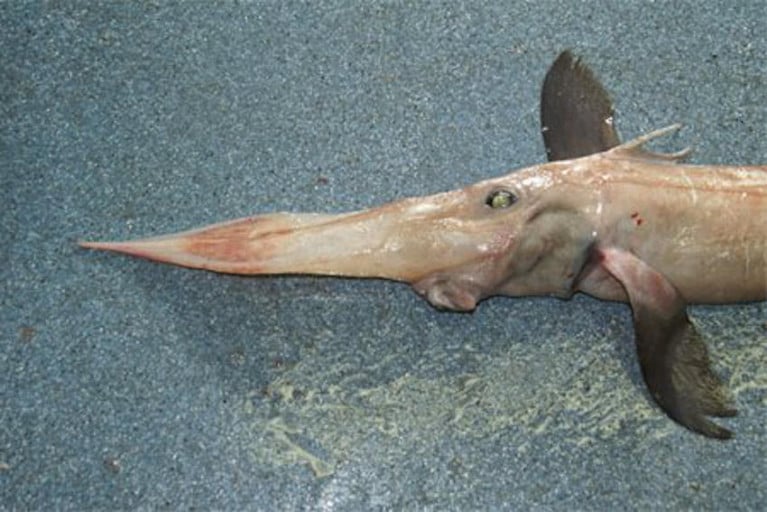Displaying items by tag: WKSHARKS
Workshop Aims To Map Deepwater Sharks In North-East Atlantic
Experts in shark biology, data and mapping recently met at the Marine Institute’s headquarters in Oranmore, Co Galway to map the distribution of deepwater sharks, skates and chimaeras in the North-East Atlantic Ocean.
Scientists and marine experts at the International Council Exploration of the Seas’ (ICES) WKSHARKS Workshop analysed decades of data from research surveys in the North Atlantic Ocean.
This included nearly 30 years of data collected by Irish scientists on board the Marine Institute’s RV Celtic Explorer and commercial vessels.
The WKSHARKS Workshop included experts from Ireland, the United Kingdom, Portugal, France and Denmark, with other experts contributing remotely from Norway, Iceland and the Netherlands.
And their aim was to produce maps that indicate the area and depth of 25 species of deepwater sharks, skates and chimaeras — information that will assist in understanding the range and habitat of these marine wildlife species, underpinning future management decisions.
It will also be considered by the Convention for the Protection of the Marine Environment of the North-East Atlantic (OSPAR) and the North-East Atlantic Fisheries Commission (NEAFC) to determine future action to sustainably manage these populations.
These two organisations have a joint interest in the open North Atlantic, while ICES scientists have unique knowledge of the deepwater fisheries and species in this area, which focuses on waters off Ireland, Portugal and Iceland.
Maurice Clarke, fisheries scientist at the Marine Institute and WKSHARKS Workshop chair, said: “Sharks and rays have an important function in maintaining balanced and healthy marine ecosystems. Providing scientific advice is essential to protecting these marine species in the North-East Atlantic.
“For many of these species, this is the first time that data from European surveys is being collated and analysed for this purpose.”
Irish waters are home to 71 species of sharks, skates, rays and chimaeras. These species include some of the latest maturing and slowest reproducing of all vertebrates, resulting in very low population growth rates with little capacity to recover from overfishing and other threats such as pollution or habitat destruction.
ICES received a joint request from the Convention for the Protection of the Marine Environment of the North-East Atlantic (OSPAR) and the North-East Atlantic Fisheries Commission (NEAFC) to develop distribution maps of deep-sea sharks, rays and skates, and also to advise on methods of mitigating bycatch of these species.






























































